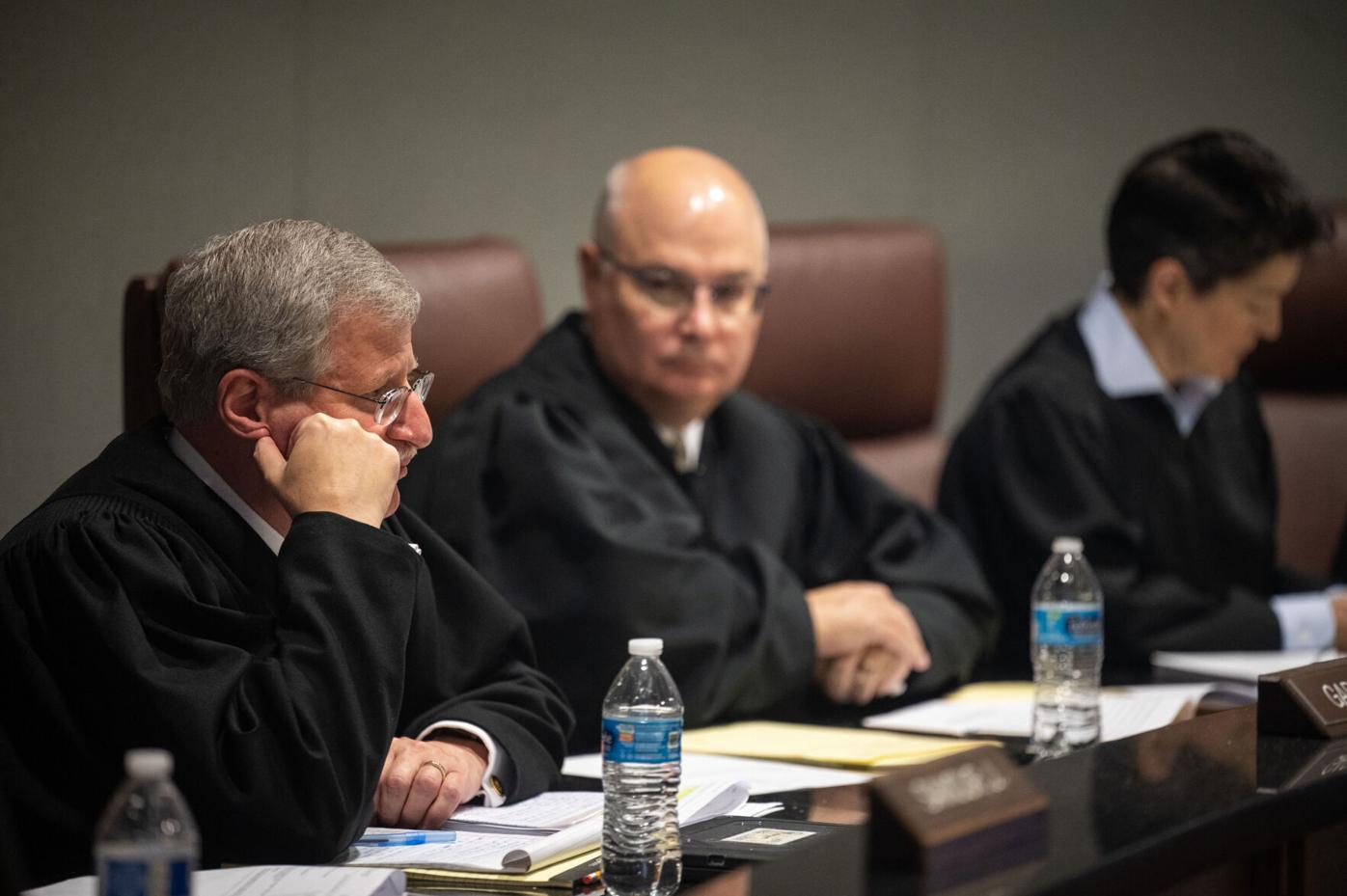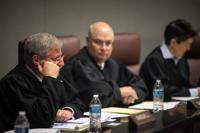Colorado Supreme Court considers whether refunds available for CSU’s pandemic campus closure
Rk9SVCBDT0xMSU5TLCBDTyAtIEFVR1VTVCAyODogSGFubmFoIEtyYW1lciwgYSBzZW5pb3IgYXQgQ29sb3JhZG8gU3RhdGUgVW5pdmVyc2l0eSwgaXMgaGVhZGluZyB0byB0aGUgQmlvLU1lZGljYWwgU2NpZW5jZXMgRGVwYXJ0bWVudCBvbiBBdWd1c3QgMjgsIDIwMjAgaW4gRm9ydCBDb2xsaW5zLCBDb2xvcmFkby4gT24gdGhpcyBkYXkgd2l0aG91dCBjbGFzc2VzLCBzaGUgaXMgc2VydmluZyBhcyBhbiB1bmRlcmdyYWR1YXRlIHJlc2VhcmNoIGFzc2lzdGFudCB0byBoZWxwIGdhaW4gcmVzZWFyY2ggZXhwZXJpZW5jZSB0b3dhcmQgaGVyIGRlZ3JlZS4gKFBob3RvIEJ5IEthdGhyeW4gU2NvdHQp
S2F0aHJ5biBTY290dA==
The Colorado Supreme Court considered on Wednesday whether students at Colorado State University had a viable claim for refunds after the school closed its campus temporarily during the COVID-19 pandemic while still retaining their fees.
On behalf of all people who paid student tuition and fees during the spring 2020 semester, Renee Alderman sued CSU alleging the school breached its contract with students and unjustly enriched itself. Specifically, she claimed CSU “saved significant sums of money” by curtailing in-person services during the early COVID-19 pandemic while holding onto payments, including approximately $867 in general fees per student.
“We’re not over here trying to create a claim that if your education is not provided in person, then at that point you can go ahead and get your money back. Or if you don’t like the quality of your education, you can get your money back,” said attorney Igor Raykin during oral arguments. But “there’s nothing in the contract that says, ‘We’re going to provide a service to you, but if we don’t we can keep the money anyway.'”
Last year, a three-judge panel of the Court of Appeals allowed the lawsuit to proceed in part. All judges agreed a unique provision in Colorado law allowing CSU to “temporarily suspend” operations in response to “the prevalence of fatal diseases” authorized the campus closure. Because the contract between students and the school incorporated that law, there was no breach.
However, Judge David J. Richman, writing for himself and Judge JoAnn L. Vogt, said the unjust enrichment claim was still viable. Citing a rule that generally bars unjust enrichment claims when they deal with the “same subject matter” as a contract, the majority believed Alderman was entitled to an exception.
Even if CSU had the power to close its campus, “it does not necessarily follow that CSU had the right to retain the tuition and fees that plaintiff had paid pursuant to the contract,” Richman noted.
Judge Ted C. Tow III disagreed that an alternate route was open to Alderman for holding CSU liable and indicated he would have sided with the school altogether.
Appearing before the Supreme Court, attorneys for both sides conceded there was no apparent benchmark to gauge when a contract and an unjust enrichment claim cover the same subject matter. Assistant Solicitor General Michael D. McMaster, representing CSU, argued the subject matter at hand was the “provision of educational services,” which the school fulfilled.
“That is the essential bargain between students and universities,” he said.
“It’s probably a little broader than making classes available,” responded Justice Richard L. Gabriel. “There’s an experience that comes with college. The gyms and clubs and activities and all that. Would that also be part of the subject matter?”
“No, we don’t think that is part of the bargain,” McMaster said.
Raykin, meanwhile, pointed out the contractual provision permitting CSU to close its campus does not state the school can retain student fees. He maintained unjust enrichment “should still be a backstop” when a key term is missing from a contract.
“That seems to me you would be asking us to pretty substantially extend existing law to say there is a contract, it’s an enforceable contract, but it doesn’t include a term you wish was there,” said Justice Melissa Hart.
“That would mean there was a hole in the contract and you could seek unjust enrichment. There’s no limit to that,” added Gabriel.

Colorado Supreme Court Justice Richard L. Gabriel, left, asks a question as First Assistant Attorney General Wendy J. Ritz makes a rebuttal argument during People v. Rodriguez-Morelos as part of Courts in the Community at the Wolf Law building at University of Colorado Boulder on Thursday, Oct. 24, 2024. The semi-annual event entails the Colorado Supreme Court hearing arguments before an audience of students throughout the state. (Stephen Swofford, Denver Gazette)
Stephen Swofford Denver Gazette

Colorado Supreme Court Justice Richard L. Gabriel, left, asks a question as First Assistant Attorney General Wendy J. Ritz makes a rebuttal argument during People v. Rodriguez-Morelos as part of Courts in the Community at the Wolf Law building at University of Colorado Boulder on Thursday, Oct. 24, 2024. The semi-annual event entails the Colorado Supreme Court hearing arguments before an audience of students throughout the state. (Stephen Swofford, Denver Gazette)
Multiple justices observed that under each claim, Alderman was alleging students were entitled to refunds due to the non-provision of services. Some members were concerned plaintiffs could always pursue unjust enrichment even if there was no underlying breach of contract.
“Under both the breach of contract theory and the unjust enrichment theory, you’re saying your clients paid money with the expectation they would receive an on-campus education and they didn’t. So, why is that not the same subject matter?” asked Chief Justice Monica M. Márquez.
Justice William W. Hood III did not participate in the case. As is the Supreme Court’s practice, he did not disclose why he recused himself. The court’s clerk told Colorado Politics she did not know why Hood’s non-participation was announced for the first time during oral arguments, given that none of the court’s prior orders in the appeal hinted at his recusal.
The case is Board of Governors v. Alderman.





